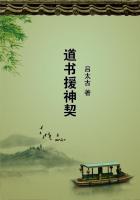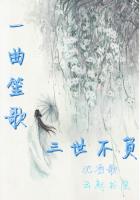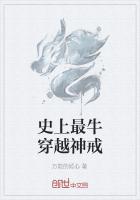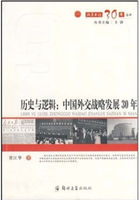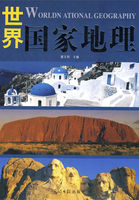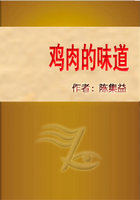Sometimes the terms and metaphors employed were more forcible than refined. One satirical journal, for instance, relates an amusing story about certain little Russian pigs that went to foreign lands to enlighten their understanding, and came back to their country full-grown swine. The national pride was wounded by the thought that Russians could be called "clever apes who feed on foreign intelligence," and many writers, stung by such reproaches, fell into the opposite extreme, discovering unheard-of excellences in the Russian mind and character, and vociferously decrying everything foreign in order to place these imagined excellences in a stronger light by contrast. Even when they recognised that their country was not quite so advanced in civilisation as certain other nations, they congratulated themselves on the fact, and invented by way of justification an ingenious theory, which was afterwards developed by the Slavophils. "The nations of the West," they said, "began to live before us, and are consequently more advanced than we are; but we have on that account no reason to envy them, for we can profit by their errors, and avoid those deep-rooted evils from which they are suffering. He who has just been born is happier than he who is dying."
Thus, we see, a patriotic reaction against the introduction of foreign institutions and the inordinate admiration of foreign culture already existed in Russia more than a century ago. It did not, however, take the form of a philosophical theory till a much later period, when a similar movement was going on in various countries of Western Europe.
After the overthrow of the great Napoleonic Empire a reaction against cosmopolitanism took place and a romantic enthusiasm for nationality spread over Europe like an epidemic. Blind, enthusiastic patriotism became the fashionable sentiment of the time. Each nation took to admiring itself complacently, to praising its own character and achievements, and to idealising its historical and mythical past. National peculiarities, "local colour," ancient customs, traditional superstitions--in short, everything that a nation believed to be specially and exclusively its own, now raised an enthusiasm similar to that which had been formerly excited by cosmopolitan conceptions founded on the law of nature. The movement produced good and evil results. In serious minds it led to a deep and conscientious study of history, national literature, popular mythology, and the like; whilst in frivolous, inflammable spirits it gave birth merely to a torrent of patriotic fervour and rhetorical exaggeration. The Slavophils were the Russian representatives of this nationalistic reaction, and displayed both its serious and its frivolous elements.
Among the most important products of this movement in Germany was the Hegelian theory of universal history. According to Hegel's views, which were generally accepted by those who occupied themselves with philosophical questions, universal history was described as "Progress in the consciousness of freedom"
(Fortschritt im Bewusstsein der Freiheit). In each period of the world's history, it was explained, some one nation or race had been intrusted with the high mission of enabling the Absolute Reason, or Weltgeist, to express itself in objective existence, while the other nations and races had for the time no metaphysical justification for their existence, and no higher duty than to imitate slavishly the favoured rival in which the Weltgeist had for the moment chosen to incorporate itself. The incarnation had taken place first in the Eastern Monarchies, then in Greece, next in Rome, and lastly in the Germanic race; and it was generally assumed, if not openly asserted, that this mystical Metempsychosis of the Absolute was now at an end. The cycle of existence was complete. In the Germanic peoples the Weltgeist had found its highest and final expression.
Russians in general knew nothing about German philosophy, and were consequently not in any way affected by these ideas, but there was in Moscow a small group of young men who ardently studied German literature and metaphysics, and they were much shocked by Hegel's views. Ever since the brilliant reign of Catherine II., who had defeated the Turks and had dreamed of resuscitating the Byzantine Empire, and especially since the memorable events of 1812-15, when Alexander I. appeared as the liberator of enthralled Europe and the arbiter of her destinies, Russians were firmly convinced that their country was destined to play a most important part in human history. Already the great Russian historian Karamzin had declared that henceforth Clio must be silent or accord to Russia a prominent place in the history of the nations. Now, by the Hegelian theory, the whole of the Slav race was left out in the cold, with no high mission, with no new truths to divulge, with nothing better to do, in fact, than to imitate the Germans.
The patriotic philosophers of Moscow could not, of course, adopt this view. Whilst accepting the fundamental principles, they declared the theory to be incomplete. The incompleteness lay in the assumption that humanity had already entered on the final stages of its development. The Teutonic nations were perhaps for the moment the leaders in the march of civilisation, but there was no reason to suppose that they would always retain that privileged position. On the contrary, there were already symptoms that their ascendency was drawing to a close. "Western Europe," it was said, "presents a strange, saddening spectacle. Opinion struggles against opinion, power against power, throne against throne.

